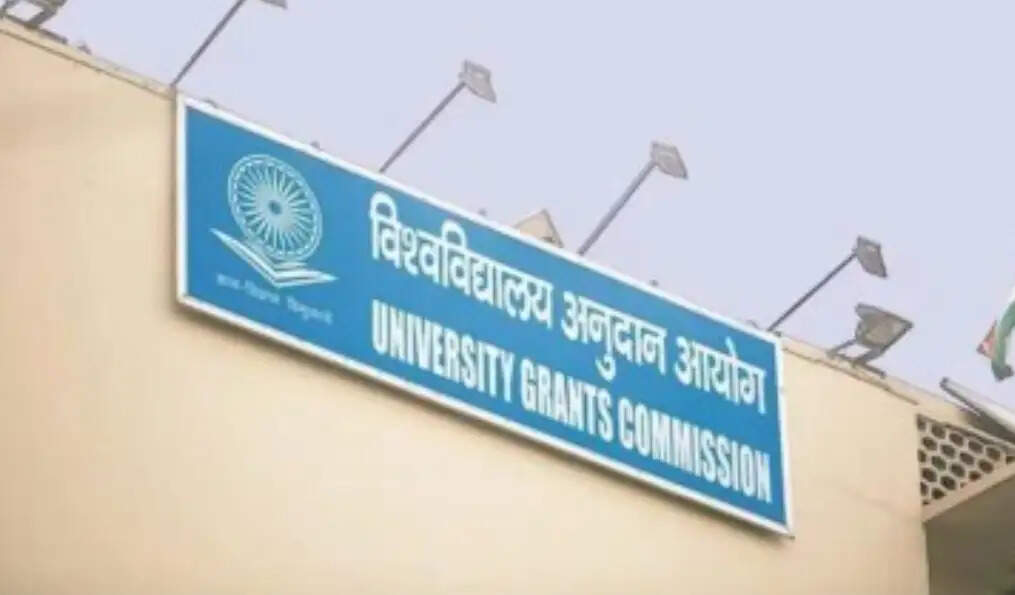In UGC draft to curb campus bias: Equity panel for quick action, squads to keep vigil
The draft comes weeks after the Supreme Court, hearing a plea by the mothers of Rohith Vemula and Payal Tadvi, who died by suicide over alleged caste-based discrimination in 2016, told the UGC to submit the new regulations the higher education regulator said it had prepared.
Mar 17, 2025, 11:13 IST

Equity committees’ to look into complaints of discrimination; ‘equity squads’ to maintain “vigil” and prevent such incidents; and an ‘equity helpline’ for reporting cases — these are among the provisions in the University Grants Commission’s draft regulations on promoting equity in higher education institutions, which were released for feedback Thursday.
The University Grants Commission (UGC) has released draft regulations aimed at promoting equity and curbing discrimination within higher education institutions (HEIs). These proposed guidelines, titled the "UGC (Promotion of Equity in Higher Educational Institutions) Regulations, 2025," introduce several measures to ensure a safe, inclusive, and equitable learning environment for all students, faculty members, and staff.
Key Provisions of the Draft Regulations:
1. Establishment of Equal Opportunity Centres (EOCs): Every HEI is mandated to set up an EOC responsible for overseeing the implementation of anti-discrimination policies. These centers will offer academic, financial, and social support to students and staff, ensuring campus diversity and inclusivity. Each EOC will be led by a permanent professor appointed as the coordinator, who will work closely with civil society groups, local media, law enforcement agencies, non-governmental organizations, faculty, and parents to achieve the regulatory objectives.
2. Formation of Equity Committees: HEIs are required to form a 10-member equity committee chaired by the institution’s head (ex-officio). The committee will include four senior faculty members, two civil society representatives, two student representatives (selected based on merit or achievements), and the coordinator of the EOC as the member secretary. The committee must include at least one woman and one member each from the Scheduled Castes (SC) and Scheduled Tribes (ST) categories.
3. Introduction of Equity Squads and Ambassadors: To monitor and prevent discrimination on campus, HEIs must establish "Equity Squads," mobile teams that will frequently visit vulnerable areas and report their findings to the EOC coordinator. Additionally, each unit, department, faculty, school, hostel, library, or facility within the HEI will designate at least one stakeholder as an "Equity Ambassador." These ambassadors will champion equity on campus, maintain regular contact with the coordinator, and serve as the point of contact for implementing programs or activities from the EOC. They will also report any equity violations promptly.
4. Implementation of a 24/7 Equity Helpline: Each HEI must set up a 24/7 "Equity Helpline" to assist stakeholders facing discrimination. The helpline will ensure confidentiality for informants upon request and provide immediate support to those affected.
5. Mandatory Undertakings to Promote Equity: All students, faculty, and staff are required to submit an undertaking at admission or renewal, committing to promoting equity and avoiding discrimination. The regulations and details of the equity helpline must be prominently displayed on the institution’s website for easy access. Additionally, posters promoting equity must be displayed around the campus to reinforce awareness.
6. Swift Action on Discrimination Complaints: An aggrieved person may report discrimination via an online portal or the Equity Helpline. The equity committee must convene within 24 hours of receiving the report to take appropriate action and submit its findings to the head of the institution within 15 working days, with a copy sent to the complainant. If the complaint is against the head of the institution, the coordinator of the EOC will chair the meeting, and the report will be forwarded to the next higher authority. False discrimination complaints may result in a fine set by the equity committee.
7. Penalties for Non-Compliance: The UGC will establish a monitoring mechanism to assess the progress of these regulations. If an HEI fails to comply with these regulations after publication in the official gazette, the UGC will form an inquiry committee to investigate. Confirmed violations may lead to penalties, including debarment from UGC schemes, degree programs, online courses, or removal from the UGC list.
These draft regulations were formulated following the Supreme Court’s directive on January 3, 2025, which instructed the UGC to frame new regulations within six weeks to address caste-based discrimination and prevent suicides among marginalized students. The directive was issued during the hearing of a 2019 petition filed by Radhika Vemula and Abeda Salim Tadvi, mothers of Rohith Vemula and Payal Tadvi, who allegedly died by suicide in 2016 due to caste-based discrimination.
The UGC has sought suggestions from stakeholders within the next 30 days to refine and finalize these regulations, aiming to foster a more inclusive and equitable environment across all higher education institutions in India.
